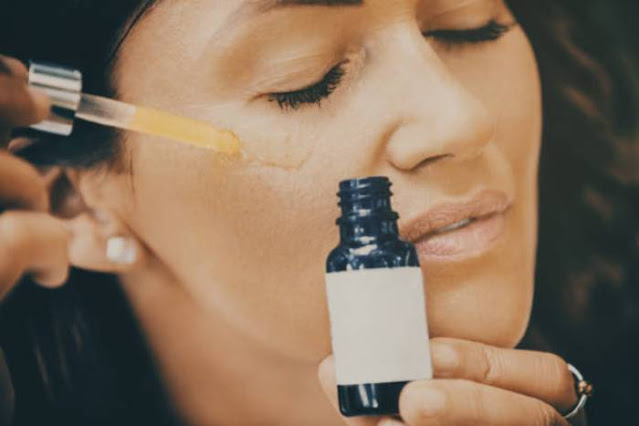Featured
- Get link
- X
- Other Apps
retinol

Introduction
In the skincare world, few ingredients have gained as much
recognition and praise as retinol. Retinol, a derivative of vitamin A, is
renowned for its remarkable anti-aging properties and ability to improve the
overall texture and entrance of the skin. This item will delve into the science
behind retinol, its benefits for the skin, and how to effectively integrate it
into your skincare routine. So whether you're looking to reduce fine lines and
wrinkles, improve skin tone and touch, or address acne concerns, retinol may be
the game-changer you've been searching for.
I. Understanding Retinol
Retinol is a form of retinoid, a class of compounds derived
from vitamin A. When applied to the skin, retinol is converted into retinoic
acid—a biologically active form of vitamin A that influences cell growth and
differentiation.
Benefits of Retinol:
Diminishes Fine Lines and Wrinkles: Retinol promotes
collagen production, a critical protein that gives the skin its elasticity.
This helps reduce fine lines and wrinkles, resulting in smoother, more
youthful-looking skin.
Improves Skin Texture and Tone: By accelerating the skin's
natural exfoliation process, retinol helps to shed dead skin cells and skimpy a
brighter and more even complexion. It can also decrease the appearance of
hyperpigmentation, sunspots, and acne scars.
Addresses Acne Concerns: Retinol aids in regulating oil production, unclogging pores, and reducing inflammation, making it an effective
treatment for acne-prone skin.
II. Incorporating Retinol into Your Skincare Routine
Start Slowly:
Gradual Introduction: Begin using retinol products with
lower concentrations, typically around 0.25% or 0.5%. This allows your skin to
acclimate to the ingredient and minimize the risk of irritation.
Patch Test: Before applying retinol to your face, conduct a
patch test on a small skin area to check for adverse reactions or sensitivity.
Choose the Right Product:
Look for Stability: Retinol is sensitive to light and air,
which can degrade its potency. Opt for products that come in opaque, airtight
packaging to ensure stability.
Consider Formulations: Retinol is available in various
forms, such as creams, serums, and oils. Choose a construction that suits your
skin type and partialities.
Combination Products: Some skincare products combine retinol
with other beneficial ingredients like hyaluronic acid or antioxidants for
enhanced results and added hydration.
Time and Frequency:
Nighttime Application: Retinol is best applied at night
since sunlight can diminish its efficacy. Following up with broad-spectrum
sunscreen during the day is essential, as retinol can increase skin sensitivity
to UV rays.
Gradual Increase: Begin using retinol products 2-3 times per
week, gradually increasing frequency as your skin becomes more tolerant.
Overuse can lead to dryness, flakiness, and irritation.
Precautions and Tips:
Moisturize: To counteract potential dryness, use a
moisturizer after applying retinol to help lock in hydration and support the
skin's barrier function.
Avoid Harsh Ingredients: To prevent irritation, avoid using
harsh cleansers, exfoliants, or other potentially irritating products alongside
retinol.
Protect the Eye Area: Retinol can be too harsh for the gentle
skin around the eyes. Instead, use an eye cream specifically formulated for
that area.
Be Patient: It takes time to see the full benefits of
retinol. Therefore, consistency and patience are vital to achieving long-term
results.
III. Who Should Avoid Retinol
While retinol offers numerous benefits, it may not be
suitable for everyone. Individuals with extremely sensitive or reactive skin,
eczema, rosacea, or pregnant and breastfeeding women should consult a
dermatologist before incorporating retinol into their skincare routine. In
addition, pregnant and breastfeeding women are typically advised to avoid
retinol due to its potential risk to the developing fetus or newborn.
Conclusion
Retinol has correctly earned its reputation as a powerhouse
ingredient in skincare. Its ability to diminish signs of aging, improve skin
texture, and address acne concerns makes it a go-to choice for many skincare
enthusiasts. By understanding the science behind retinol, starting slowly,
choosing the right product, and following proper application techniques, you
can harness the benefits of this remarkable ingredient and achieve the glowing,
youthful skin you desire. So be patient, monitor your skin's response, and
consult a dermatologist. With retinol as a part of your skincare arsenal,
you're one step closer to achieving a radiant and age-defying complexion.
- Get link
- X
- Other Apps